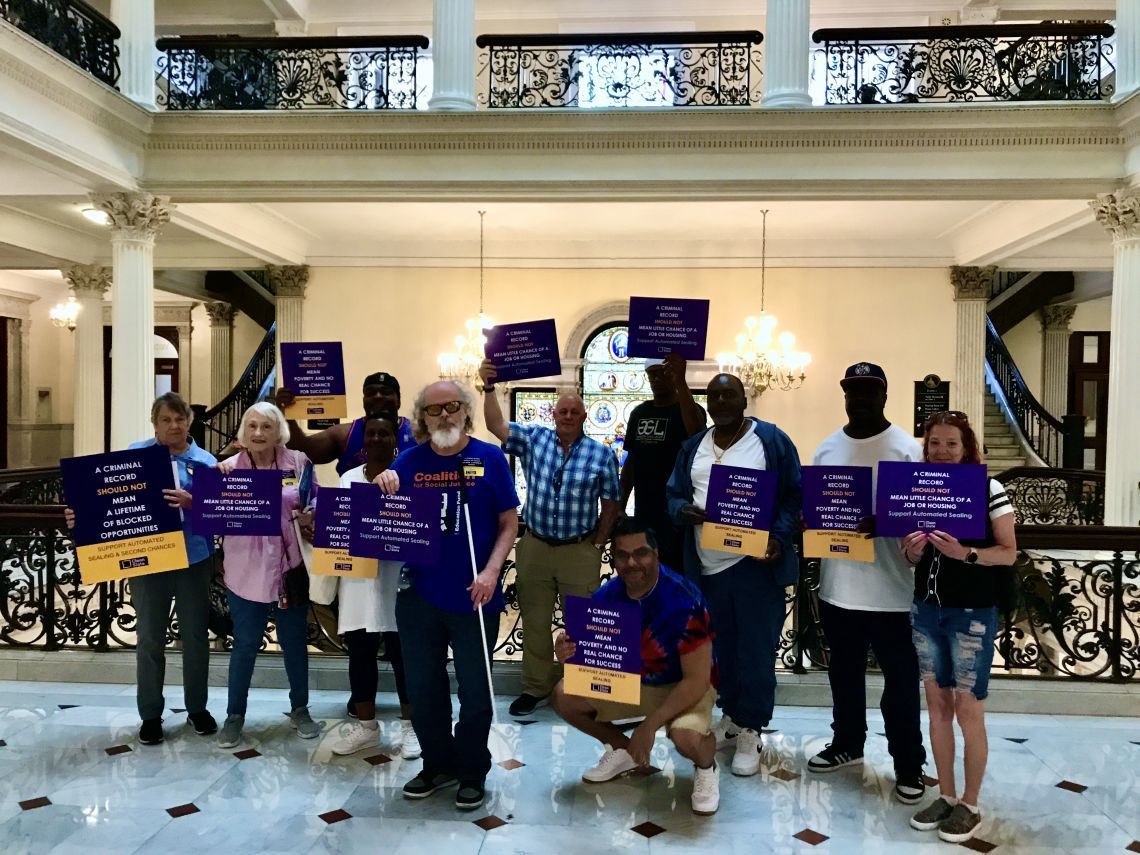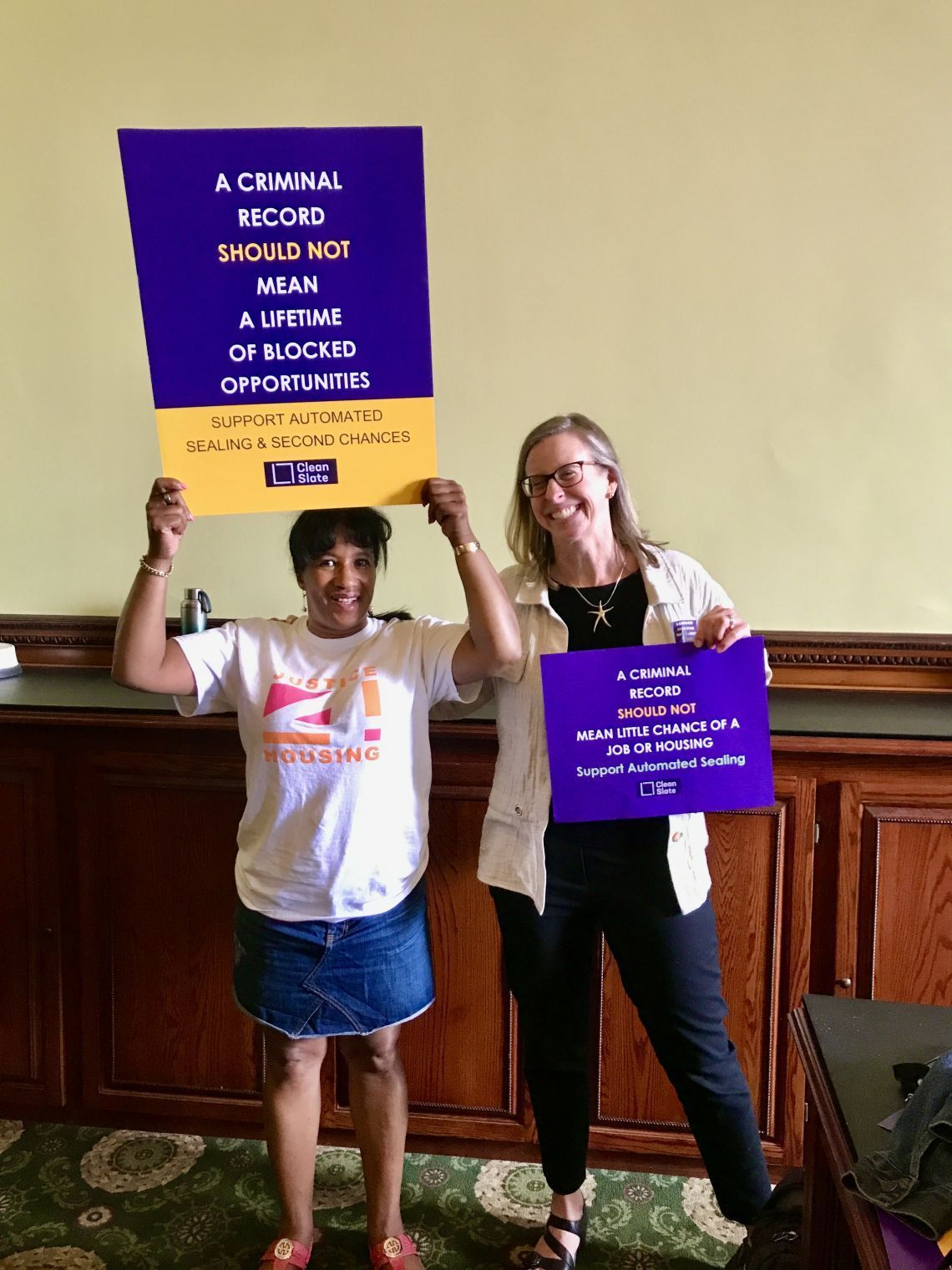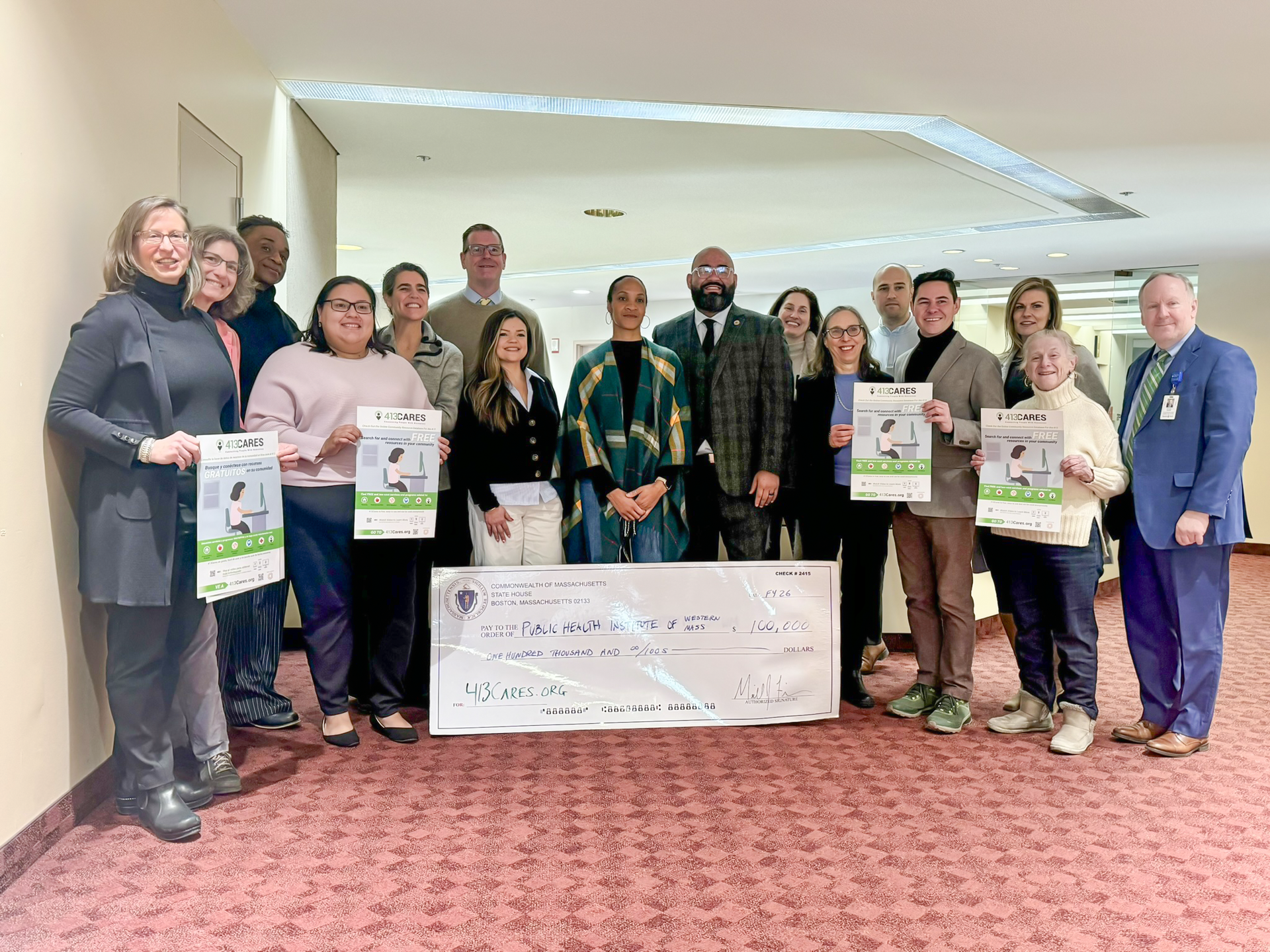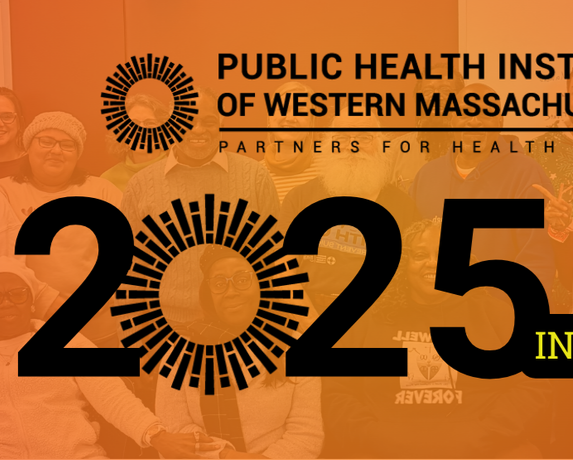Update on Second Chance/Clean Slate Bill
On June 14 scores of advocates joined with state senators and representatives on Beacon Hill to highlight the pressing need to modernize Massachusetts’ outdated system for managing criminal offense record information (CORI). The Legislature’s Criminal Justice Reform Caucus hosted this legislative briefing to champion two “clean slate/second chance bills” that would reduce CORI barriers for returning residents to access housing and jobs. People who were formerly incarcerated spoke about the challenges they face when their CORIs are not sealed when they should be. We also heard from the Litigation Director for Community Legal Services of Pennsylvania, a national expert on clean slate laws.
One bill (H.1598/S.979), introduced by Rep. Keefe and Sen. Friedman, would automatically seal criminal and juvenile records after the applicable waiting periods, without having to file a petition. To date, the Western MA co-sponsors of this bill are Reps. Duffy, Farley-Bouvier, Pease, Sabadosa, Williams, and Sens. Comerford, Gomez, and Oliveira. The other bill (H.1493/S.998), introduced by Rep. Fluker-Oakley and Sen. Gomez, would require that a CORI be immediately sealed if a charge does not end in a conviction. To date, the Western MA co-sponsors of this bill are Reps. Sabadosa, Williams, and Sen. Gomez.
Several states already have such systems in place, and Massachusetts needs to implement them too. Both bills are PHIWM legislative priorities, and we are an active member with the Clean Slate/Second Chance Coalition, in partnership with Greater Boston Legal Services, Justice 4 Housing, Union of Minority Neighborhoods, Community Work Services, and many other organizations committed to a more equitable CORI system. If you would like to help advocate for these bills or are looking for more information, contact Andrea Freeman

Pictured: Some of the more than 50 people who gathered at the State House to advocate for CORI reform, because a criminal record should not mean poverty and no real chance for success.

Pictured from left: Leslie Credle, Executive Director of Justice 4 Housing, and PHIWM's Policy Director Andrea Freeman at the State House advocating for CORI reform
share this
Related Articles




